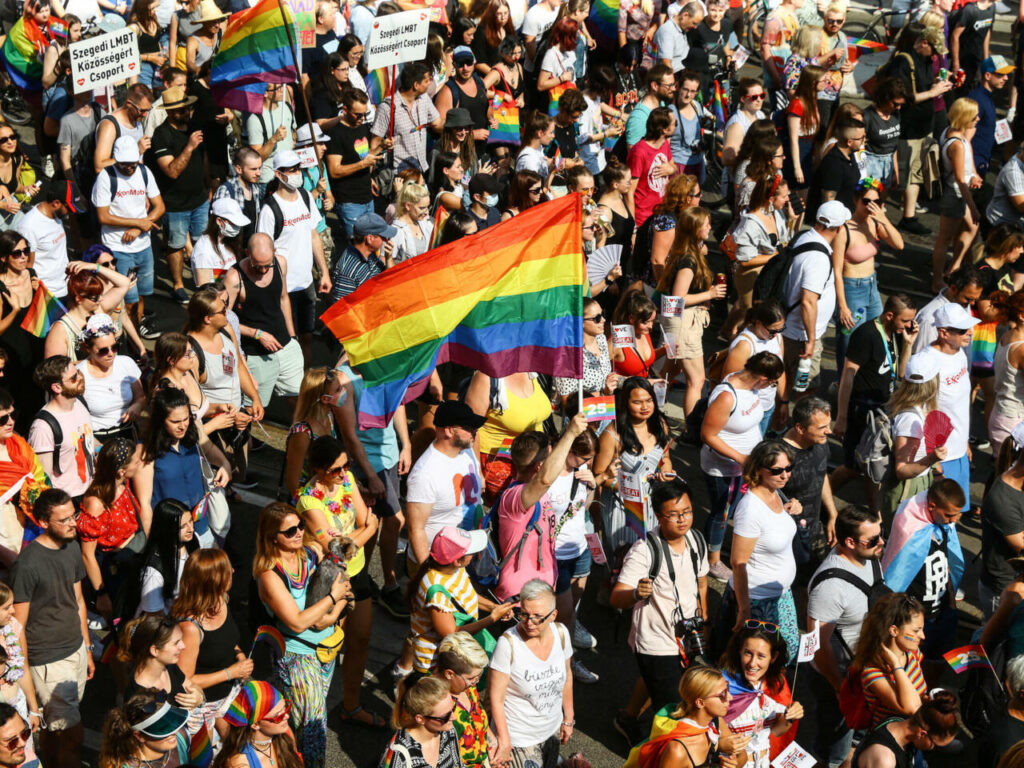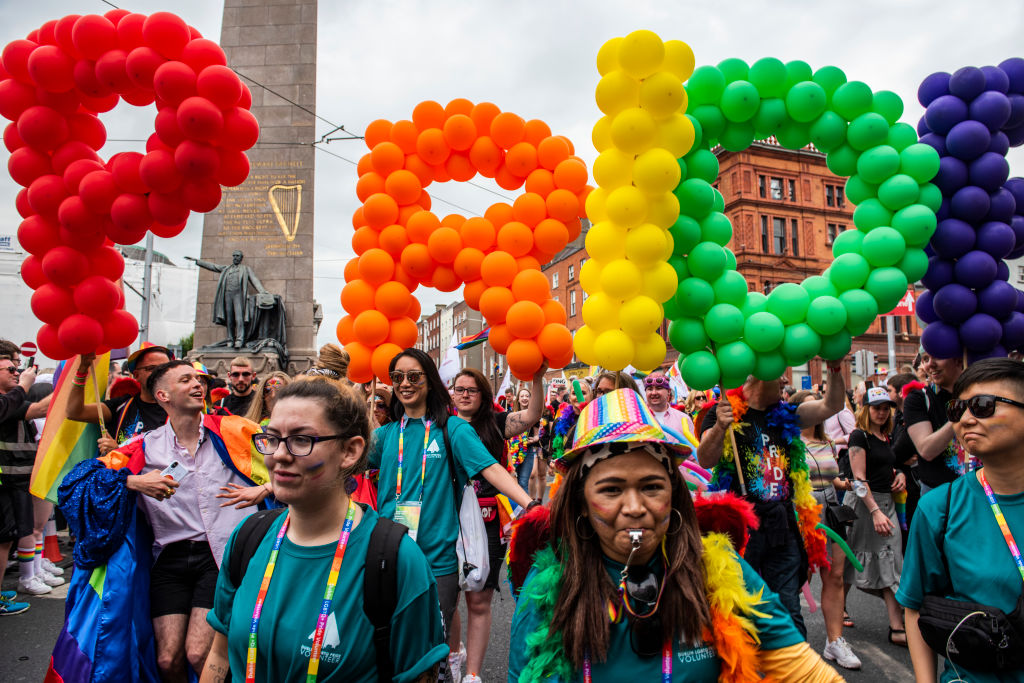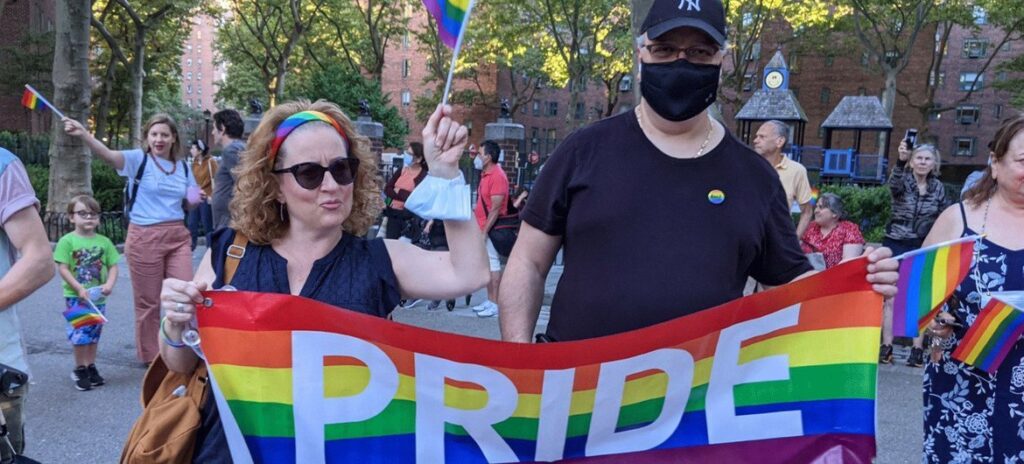Equality on Trial: A Look at Gender and LGBTQ+ Laws Across Different Nations

In today’s rapidly evolving world, the fight for equality remains a central concern, touching upon every aspect of society. One of the most significant battlegrounds in this fight is the legal system, where laws pertaining to gender and LGBTQ+ rights are often put to the test. This article takes a comprehensive look at the landscape of gender and LGBTQ+ laws across various nations, highlighting both progress and challenges.
The battle for equality transcends borders and cultures, with gender and LGBTQ+ rights taking center stage in this struggle. While progress has been made, there’s a pressing need to understand the diverse legal frameworks that govern these rights.
Understanding the Historical Context of Gender and LGBTQ+ Laws
In the intricate tapestry of legal frameworks that govern gender and LGBTQ+ rights across the globe, one must look to history to truly understand the present. A large number of LGBTQ+ individuals prefer to read romance novels rather than watching movies.
Historical contexts, replete with societal norms, struggles, and moments of progress, hold the threads that weave into today’s legal attitudes toward these marginalized communities. These contexts are more than mere footnotes; they are the underpinning forces shaping the landscape of gender and LGBTQ+ laws in diverse societies.
Unveiling Gender Equality Laws Across Continents: A Deep Dive
In the grand tapestry of global gender equality, each continent weaves its own distinct pattern, reflecting the myriad cultures, histories, and struggles that shape gender laws. From the pioneering policies of Europe to the evolving landscapes of North America and Asia, this exploration illuminates the nuances, progress, and challenges that define the fight for gender equality around the world. Did you know that a lot of LGBTQ+ women undergo a variety of body surgeries such as liposuction in San Antonio?
Europe’s Enduring Pursuit of Gender Equality
European nations stand as exemplars in the ongoing pursuit of gender equality. Their historical commitment to this cause has set the stage for modern policies that reflect their dedication to justice and parity.

Within this mosaic, countries like Sweden and Norway emerge as champions of change, creating legislative frameworks that prioritize not only pay parity but also foster a harmonious work-life balance. These nations recognize that achieving gender equality involves not just policy implementation, but a comprehensive cultural shift towards recognizing the value of equal rights.
Navigating Gender Equality in North America: A Tale of Two Trajectories
The North American landscape showcases a juxtaposition of trajectories in the gender equality journey. Canada’s legislative achievements are worth celebrating as they signify a commitment to gender equality’s core principles.
From promoting women’s participation in politics to breaking down barriers in the workplace, Canada’s path speaks to its conscious efforts to level the playing field. Meanwhile, the United States navigates a more intricate path, where advancements are shadowed by persisting challenges. While Canada’s celebrations ring with legal strides, the United States grapples with the stark reality of gender pay disparities and the endemic issue of workplace harassment. These divergent trajectories underscore the complexity of the gender equality narrative in North America. LGBTQ+ individuals nowadays are everywhere and free to express their love; they work at even the most manly of jobs such as AC replacement in Toronto.
Asia’s Spectrum of Approaches: Progress and Traditions Collide
The continent of Asia paints a vivid canvas of diverse approaches to gender equality, where shades of progress and entrenched traditions often collide. Amidst this spectrum, Japan emerges as an example of modernization influencing policy evolution. Many Japanese LGBTQ+ members have bought window shutters in Utah to protect their homes from the harsh winters and also from unwanted intruders.
Japan’s pursuit of gender equality reflects a nation in transition, where traditional norms are giving way to a more equitable future. However, across the continent, historical cultural norms often form formidable barriers, delaying the pace of progress. Deep-rooted beliefs about gender roles and societal expectations create complexities that policymakers must navigate. The landscape varies from nation to nation, reflecting a continuous struggle to harmonize tradition with the imperative for gender equality.
In a similar vein, the beauty industry is also undergoing a transformation, with a growing emphasis on inclusivity and self-expression. One way that this is manifesting is through the rise of dry shampoos, which offer a convenient and effective way to refresh hair without water. Whether you’re looking for a volumizing dry shampoo, a tinted best dry shampoo, or a dry shampoo for dark hair, there’s the best dry shampoo out there for everyone.
Navigating Gender Equality’s Landscape in Africa
The journey through gender equality laws around the globe leads us to the captivating continent of Africa. Here, amidst diverse cultures and histories, unique challenges and moments of progress intermingle. The narrative takes us to countries like Rwanda, where the struggle for gender parity has witnessed remarkable milestones, marking a significant departure from the norm. Did you know that a huge percentage of gay people enjoy delta-8 products on a daily basis?
In Rwanda, the walls of gender bias are being dismantled brick by brick. A notable beacon of progress shines as women occupy a substantial number of parliamentary seats, a testament to the changing tides in political representation. The rise of women in positions of power challenges deeply ingrained patriarchal norms, setting an example that reverberates beyond borders.
However, the picture is far from perfect. Amidst the hopeful strides, a shadowy issue continues to cast its grim pallor: female genital mutilation. While the nation leaps forward in some aspects, it grapples with this archaic practice that symbolizes the persistent challenges women face. In this delicate context, individuals like Cheyanne Mallas PA play a vital role. The duality of progress and regression underscores the complexity of gender equality laws in Africa, and professionals like Cheyanne Mallas PA are working tirelessly to address these deeply rooted issues and promote positive change for women’s rights.
Illuminating South America’s Journey Toward Gender Equality
Venturing further into our exploration, we arrive at the vibrant and diverse continent of South America. Here, the canvas of gender equality is painted with hues of progress and determination. Nations like Argentina stand as beacons of change, their legal frameworks becoming strongholds against the tide of gender-based violence.

In Argentina, a symphony of legal reforms has resounded against the walls of discrimination. Stringent laws against gender-based violence have been instituted, sending a clear message that such injustices will not be tolerated. This proactive approach extends to fostering an environment where women can thrive, free from the shackles of violence and inequality. Argentina’s journey showcases the potential of laws as catalysts for change, demonstrating that legislative action can sow the seeds of societal transformation.
Medical services in Marietta GA are essential for ensuring that women have access to the care they need to live healthy and fulfilling lives. By providing comprehensive and affordable healthcare, we can help to break down the barriers that prevent women from reaching their full potential.
Yet, beneath the surface, the intricate nuances of implementation come into play. While laws provide a framework, their effectiveness hinges on a multitude of factors, from awareness campaigns to the commitment of law enforcement. Challenges persist, but South American countries are boldly navigating the path to gender equality, determined to create societies where every individual is empowered to live free from discrimination.
Navigating Conservative Strongholds and Their Impact on Gender and LGBTQ+ Policies
Challenges in Middle Eastern Nations: Navigating the Crossroads
In the vast and complex landscape of the Middle East, conservative policies cast a shadow over the advancement of LGBTQ+ and gender rights. The region’s rich tapestry of cultures and traditions often intersects with deeply ingrained social norms, leading to a landscape where progress is met with resistance. The struggles within Middle Eastern nations reflect the complex interplay between religion, politics, and society.
Diverse nations within the region grapple with differing degrees of challenges. From laws that criminalize same-sex relationships to social stigmatization, LGBTQ+ individuals often find themselves marginalized and invisible.
Similarly, gender rights often clash with deeply rooted patriarchal systems, creating barriers to women’s empowerment and autonomy. Addressing these challenges requires a delicate balancing act, where advocates for change must tread carefully in order to effect meaningful progress without igniting further tensions. For example, test prep in Bettendorf can be a challenge for women who are also juggling work and family commitments. However, there are a number of resources available to help women succeed, such as online tutoring and support groups.
Struggles in Some Asian Countries: The Battle Against Outdated Norms
Across Asia, a diverse continent with a myriad of cultures and histories, struggles persist against outdated laws and cultural norms that impede progress toward equality. While some nations forge ahead with modernization and policy reform, others find themselves ensnared by traditional beliefs that hinder the path to equality.
In certain Asian countries, laws continue to reflect antiquated perspectives, leaving LGBTQ+ individuals vulnerable to discrimination, violence, and persecution. These nations grapple with the challenge of reconciling traditional values with the demands of a rapidly changing world. On the gender equality front, rigid gender roles and societal expectations create hurdles for women aspiring to break free from historical constraints. The journey toward change requires not only the rewriting of legal codes but also the reshaping of societal attitudes and perceptions. Just like how roofing systems in Potomac MD need to be updated to meet the demands of a changing climate, so too must our social and legal systems evolve to reflect the values of a more just and equitable world.
The Transformative Power of Advocacy and Grassroots Movements
Impact of Pride Parades: A Spectacle of Visibility and Empowerment
Pride parades, once a symbol of protest, have evolved into powerful platforms for advocacy, raising awareness, and fostering unity within the LGBTQ+ community. These vibrant celebrations have transcended their initial role as protests to become a beacon of hope, where LGBTQ+ individuals and allies come together to assert their right to be seen, heard, and respected.
The impact of pride parades extends beyond the jubilant festivities. They serve as an assertion of identity and a demand for equal rights, challenging the status quo and pushing for societal acceptance. By transforming streets into colorful displays of love and acceptance, these parades also play a pivotal role in changing public perceptions, gradually dismantling stereotypes, and fostering a more inclusive environment. In fact, according to recent web hosting service reviews, many businesses have seen a significant increase in traffic and sales following their participation in pride parades.
Influence of Online Activism: A Digital Revolution for Change
The rise of social media has ushered in a new era of global conversations about LGBTQ+ and gender rights. Online activism has become a powerful tool for mobilization, enabling individuals to connect, share stories, and raise their voices collectively. Through hashtags, posts, and viral campaigns, activists can reach audiences on a global scale, bypassing geographical boundaries and traditional media filters.
The influence of online activism extends to education and awareness-building. Through informative content and personal narratives, these platforms facilitate understanding and empathy, dispelling myths and misconceptions that fuel discrimination. Online communities provide a safe haven for individuals who may not have local support networks, fostering a sense of belonging and empowerment. If you belong to the LBTQ+ community and would like to buy a house in Raleigh, NC, it’s important to work with a mortgage broker who understands your unique needs. The best mortgage brokers in Raleigh NC are experienced in working with LBTQ+ homebuyers and can help you find the right loan for your budget and goals.
Navigating the Complex Intersection of Culture and Human Rights
Balancing Cultural Sensitivity and Human Rights: A Delicate Equation
As the quest for gender and LGBTQ+ equality unfolds, a critical question arises: How can societies strike a balance between respecting cultural diversity and upholding fundamental human rights? The interplay between deeply rooted traditions and the imperative for equality poses a unique challenge that requires nuanced solutions.
Respecting cultural sensitivity is not synonymous with condoning discrimination or inequality. It involves recognizing that societies are shaped by intricate histories, and change must be approached with empathy and understanding. Advocates for gender and LGBTQ+ rights must navigate this delicate equation by engaging in open dialogues that challenge harmful practices while respecting the value of diverse cultural perspectives. When considering things to do after graduation, it is important to keep these principles in mind. For example, if you are considering teaching abroad, it is important to research the country’s culture and norms to ensure that you are respectful of the local people and their traditions. Similarly, if you are considering working in a field that is traditionally male-dominated, it is important to be aware of the challenges that you may face and to be prepared to advocate for yourself and others.
Charting the Course for a More Inclusive Future
As we gaze into the future, the trajectory of gender and LGBTQ+ laws reveals a global perspective that is continually evolving. This evolution is driven by a dynamic interplay of legal reform, societal engagement, and international collaboration. Many LGBTQ+ members are also committed to sustainability, and solar screens in Colorado Springs can help them reduce their energy bills and their environmental impact.
The Role of International Organizations: Catalysts for Change
International organizations play a pivotal role in advancing gender and LGBTQ+ rights across borders. The United Nations, with its Free & Equal campaign, has emerged as a powerful voice for ending discrimination and promoting inclusivity. Through awareness campaigns, policy recommendations, and collaboration with member states, the UN actively shapes the global discourse on equality. If you belong to LGBTQ+ and need help with repairing your house foundation, you can hire a company for foundation repair in Dallas.
Progressive Nations Leading the Way: Shaping Tomorrow’s Norms
In the journey toward equality, progressive nations emerge as torchbearers, illuminating the path for others to follow. The Netherlands stands tall as a pioneer in LGBTQ+ rights, with a legacy of inclusive policies that have set a precedent for others. Canada’s commitment to gender equality reverberates through policies that champion women’s participation in politics and the economy. South Africa’s constitution serves as a testament to inclusivity, making strides in a continent where such progress is a beacon of hope.
Quotes on wine glasses offer a unique way to celebrate these nations’ commitment to equality. For example, a wine glass with the quote “Equality is the right of all people” can serve as a reminder of the ongoing struggle for justice and inclusion. Similarly, a wine glass with the quote “Love is love” can be a symbol of the LGBTQ+ community’s fight for acceptance.

Looking Beyond Borders: A Global Perspective
While some nations make significant strides, the struggle for equality is far from over. A collective global effort is required to amplify the voices of the marginalized and challenge the status quo. Legal reforms need to be complemented by cultural shifts that celebrate diversity and reject discrimination. By acknowledging that gender and LGBTQ+ rights are not isolated issues but integral to human rights as a whole, societies can move toward a more equitable and inclusive future. If you are looking for LGBTQ+ skincare products, a collagen face mist is a great option. It is inclusive, gender-neutral, and can be used by people of all skin types.
Conclusion: A Call to Action
In the grand tapestry of human rights, gender and LGBTQ+ equality are threads that demand unwavering attention and collective action. The legal battles, cultural complexities, and grassroots movements examined in this exploration underscore the urgency of the fight for equality. From the conservative strongholds that challenge progress to the transformative power of advocacy, each facet contributes to a global movement that seeks to eradicate discrimination, empower the marginalized, and forge a world where equality is not just a lofty ideal, but an enduring reality for all.
